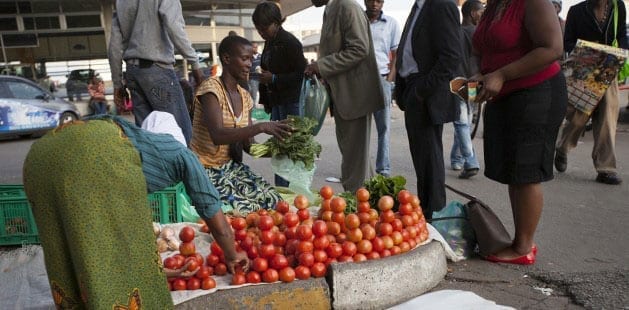Many adults in Zimbabwe have turned to informal businesses as formal job opportunities decline, according to the Coalition for Market and Liberal Solutions (Comaliso).
The Zimbabwe National Statistics Agency reports that nearly 86% of Zimbabwe’s adult population now works in the informal sector due to tough economic conditions that have hurt traditional industries.
Comaliso said changes in consumer habits have led to the creation of small retail spaces in malls, known as partitioned mall retail units (LPMRUs), where many new entrepreneurs now operate.
“A new wave of retail entrepreneurs prefers these small spaces, as property owners are dividing shops into small units, usually no bigger than 20 square meters each,” Comaliso explained.
ALSO READ: VIDEO: “You can spot a Zimbo from afar” – reactions pour as African vendors dodge police in New York
“About 600,000 young people in urban areas have started businesses in these small spaces. Whether we call them ‘informal’ or ‘unemployed’ is just a matter of terminology.
“Thinking this situation is just temporary and that big stores like Haddon & Sly, H.M. Barbours, Meikles, and Bradlows will come back is unrealistic.”
Comaliso’s survey showed that nearly 60% of these small retail units are run by women. The survey, which included 2,000 questionnaires from malls in Harare, Bulawayo, Mutare, Gweru, and Chinhoyi, found that:
“Almost 80% of the people surveyed were unhappy with the shop licensing and tax processes.
“Councils should not apply the same rules used for large stores to these small units. They should be allowed to pay license fees quarterly, like with Zinara [Zimbabwe National Road Administration] discs,” the survey respondents said.
“This would make it easier for them to manage payments over time, instead of a large annual fee. Also, municipal police and ZRP [police officers] often make unnecessary demands for bribes from these small businesses.
“This behavior is unacceptable. The Zimra [Zimbabwe Revenue Authority] tax system is also a burden for these businesses. While Comaliso agrees that Zimra should expand its tax coverage, the rates are too high. We suggest payments be made quarterly and tax clearance be expedited to help these businesses get goods and participate in public tenders.”
The survey also found that 90% of respondents were frustrated by the difficulty of getting loans due to requirements for collateral, financial records, and high interest rates.
“Comaliso believes that the growth of LPMRUs and informal businesses means the Reserve Bank of Zimbabwe, Bankers Association of Zimbabwe, and other financial institutions need to update their loan conditions to reflect current trends.
“Financial institutions can’t keep relying on outdated ‘payslips’ as evidence of income, since 80% of working Zimbabweans have never had a payslip.”









